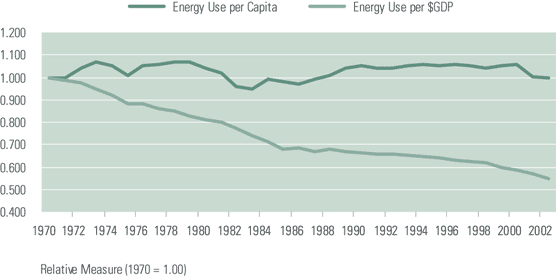Outside of trade policy and climate treaties, I very seldom discuss foreign policy. First, because it is not my first interest. Second, because I am not an expert and do not spend the time to keep myself sufficiently informed on the issues to have useful insights. Third, because of exactly this problem stated so well my Megan McArdle:
I periodically flirt with isolationism, or if you prefer,
"non-intervention". Like most libertarians, I'm attracted to "high
concept" political philosophy: simple rules that can be stated in a
sentence or less. No arguments about causus belli, blowback, or
ultimately unknowable political ramifications; just a simple "yes or
no" test. Did a foreign army invade the United States? For "Yes", press
one; for "No", press two, and go back to arguing about what should
replace child welfare laws in the coming anarcho-capitalist society.
Besides, all the foreigners hate having us there. Why not leave, and
see if absence makes the heart grow fonder? (I suspect that many
nations which have come, over long decades, to regard regional peace as
some sort of natural law, will get a rather nasty surprise. This might
make our influence look, in retrospect, rather appealing.)
But anyone who thinks at all seriously about libertarianism will,
fairly early on, be faced with a very high hurdle. There are a handful
of wars in which American intervention unambiguously halted gross
abuses of human liberty. World War II is one, though many end up going
around, rather than over . . . arguing that the Nazis were the direct
result of American intervention in World War I; or that it was
justified because Japan attacked us1; or that Russia and Britain would have defeated Hitler anyway2. The American Civil War, however, is by far the highest leap; and the hardest to dodge.
In theory, every state has the right to secede, and the stated
Federal rationale for the Civil War--preserving the union--was the
vilest tyranny. In practice, chattel slavery was a barbarism even
viler.
And so we killed 20-30% of the Confederate Army, not a few of our
own, and uncounted numbers of civilians. That's not counting the
wounded, who probably outnumbered the dead. All we managed to achieve,
at this horrendous cost, was a corrupt and brutal occupation, followed
by the "freedom" of Jim Crow, sharecropping, and "separate but equal". And it was worth it.
The good guys won. We didn't do everything we wanted to, or even
everything we could have, or should have. Jim Crow was putrid. But it
was nonetheless so much better than slavery that it was worth the
horrendous cost--in my opinion, and that of almost everyone in the
world.
For me, a big part of the problem is one of information -- generally, most of the information one might find useful in deciding if X is a good war to pursue is from the government, an institution that demonstrably cannot be trusted based on past history when it makes this case. Non-interventionism seems the right way to go, except for the
(relatively few) times it is not. The problems is, to paraphrase the
famous dictum about advertising money, "half (or more) of our wars are
a waste -- we just don't know in advance which half." Megan uses the
example of the Civil War, saying that that war was worth it because we
got rid of slavery. But the war by no means began that way. It wasn't
really until well into the war that both sides were pretty much in
agreement that the war was about ending or retaining slavery. I would argue that in advance, that war looked like an awful, terrible, horrible proposition. The initial value proposition was "let's go to war so the Feds can have a bigger empire to run." Only later did it become, "let's go to war to free a large part of our population." There was a female professor, I forget her name, who made the point that the Emancipation Proclamation changed the war from a bloody waste of time to a moral positive. But that came years into the fight.
The other problem I have is that the war is fought by, well, the government, the institution for which I have no trust. One way of thinking about it is that every time we go to war, we put our lives and treasure and very future as a country in the hands of the Post Office. Eeek.
